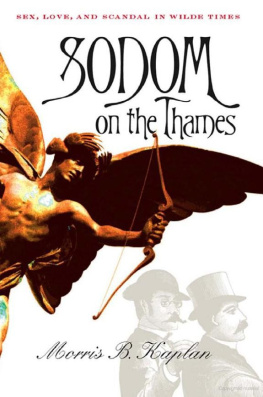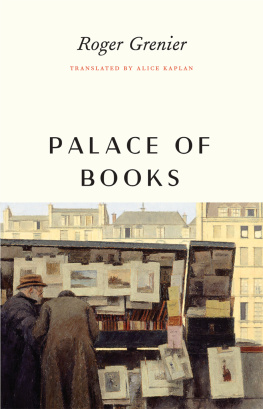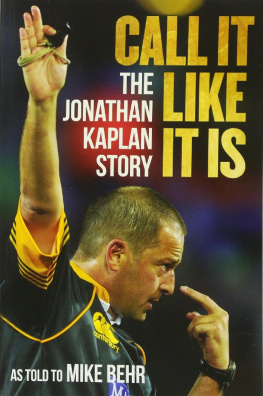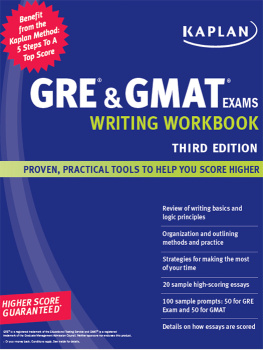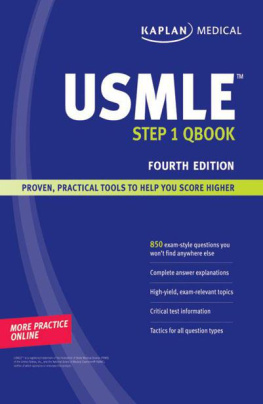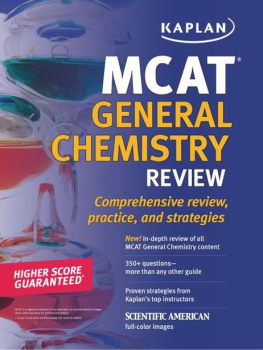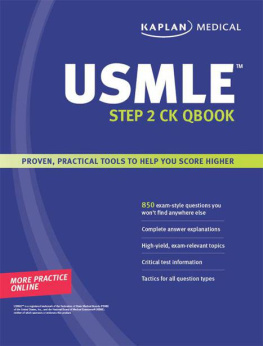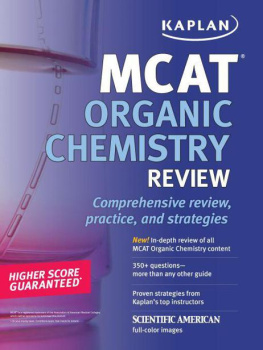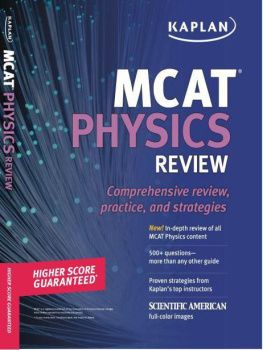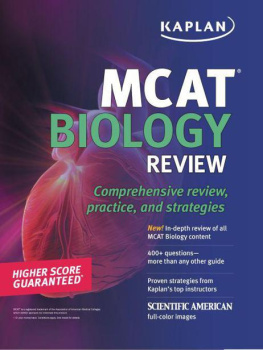ACKNOWLEDGEMENTS

This book got its start at a summer seminar titled The Culture of London, 1850-1914 sponsored by the National Endowment for the Humanities in 1995-1 am extremely grateful to Director Michael Levenson and my fellow Londonists for the stimulation and encouragement they provided. Some have continued the conversation, especially Heidi Holder, Pamela Gilbert, and Joseph McLaughlin. Archival research was a new undertaking for me; I was launched with generous help from Purchase College colleagues Geoffrey Field and the late Michael OLoughlin and from William A. Cohen. I have been further assisted by a summer research grant from NEH, annual grants from Purchase College, and a generous leave policy. I appreciate the support of Provost Gary Waller and Dean of the School of the Humanities Gari LaGuardia. My colleagues in the School of Humanities, the Philosophy Board of Study, and the Lesbian and Gay Studies Program have been an ongoing source of support, friendship, and inspiration. I spent my sabbatical year 2001-2002 as visiting fellow at the Birkbeck College Law School, University of London. I am very grateful to the faculty and staff who welcomed me warmly and provided a stimulating and congenial intellectual environment. I have been very lucky in my affiliations.
My research has benefited considerably from conversation with other scholars currently working in the field who shared with me their unpublished work, especially Paul Robinson, Matt Cook, Harry Cocks, Chris Waters, Matt Houlbrook, and Matt Stone. (See the Suggestions for Further Reading for references to their subsequent publications.) Other friends have also been generous in discussing the project over the years: Ed Stein, Gari LaGuardia, Frank Farrell, Garrath Williams, Jamie Mayerfeld, Peter Mack, Carolin Emcke, Seyla Benhabib, Alan Ryan, Judith Buffer, Les Moran, and Elena Loizidou. Two friends went well beyond the call of duty in helping with this work. Michael Levenson provided a detailed critique of this manuscript at almost every stage of its development. Bill Torbert spent part of his vacation reading the entire penultimate draft to offer invaluable advice from the perspective of the elusive general reader. I am indebted to them for some of the books best qualities; the faults remaining are my own.
I could not have pursued this work without the opportunity to lecture and publish along the way. I feel enormously indebted to the interdisciplinary community of scholars from whom I have learned so much. This list can be only a partial record of my debts. Thanks to: Elizabeth Emens, Jeffrey Weeks, Joseph Bristow, Judith Walkowitz, Lynda Nead, Lynne Segal, John Howard, Harry Hirsch, Peter Stansky, Davina Cooper, Carolyn Dinshaw, David Halperin, Pericles Lewis, Oliver Philips, Nancy Tuana, Tracy Strong, Alison Shonkwiler, George Robb, Patrick Hanafin, Adrian Rifkin, Irit Rogoff, Didi Herman, Peter Fitzpatrick, Regina Kunzel, Deborah Amory, James Thompson, Randolph Trumbach, Eugene Rice, Nicola Lacey, and Martha Vicinus.
This work would not exist without the archival material on which it is based. Many institutions made available their resources, including books, newspapers, manuscripts, and images. I am grateful for their assistance to members of the staff at: Churchill College, Cambridge; the British Library and the BL Newspaper Collection, Collindale; the Public Records Office, now the National Archive, Kew; the London Library; Tate Britain; the Victoria and Albert Museum; the National Museums, Liverpool; and the Essex County Records Office. I am especially grateful to the Hon. Christopher Brett for permission to quote extensively from the Esher Archive at Churchill College.
I would like to thank those who invited me to present my research and to those who responded to my presentations at the following colleges and universities: Columbia University; Kings College, Cambridge; Goldsmiths College, London; Birkbeck College, London; Stanford University; University of California, San Diego; University of California, Berkeley; South Bank University; University of Oregon; University of Washington; Yale University. Thanks also to the organizers and audiences at the following conferences: Old Boys and New Women Clark Library, UCLA; Gender, Sexuality, and the Law, Keele University; Queer Matters, Kings College, London; National Conference on British Studies; Middle Adantic and Pacific Conferences on British Studies; American Political Science Association; Western Political Science Association; International Association for the Study of Sexuality and Culture; and Metropolitan New York Lesbian and Gay History Group.
Thanks to the staff at Cornell University Press for their assistance in producing this book, especially Bemie Kendler and Ange Romeo-Hall. Jane Marie Todd provided excellent copyediting and David Prout prepared the index.
Passages from previously published articles have been incorporated at various points throughout the book. Did My Lord Gomorrah Smile? appeared in Disorder in the Court, ed. Nancy Erber and George Robb (London and New York, 1998). Whos Afraid of John Saul? Urban Culture and the Politics of Desire in Late Victorian London was published in GLQ: A Journal of Lesbian and Gay Studies 5, no.3 (i999)- Men in Petticoats: Border Crossings in the Queer Case of Mr. Boulton and Mr. Park appeared in Imagined Londons, ed. Pamela Gilbert (Albany, 2001). Literature in the Dock: The Trials of Oscar Wilde was published in Journal if Law and Society 31, no. 1 (2004): 113-30. The material is used with permission of the publishers.
The frontispiece and figure 18 are reproduced with permission of the Tate Museum, London; figures 4,12, and 14 with the permission of the British Library (1414100, Vanity Fair LD61 November 7,1874, 257; November 19,1884,323); figures 1-3, 5-7, that of the Essex County Records Office; figures 8,13,16, and 17 from Illustrated Police News, courtesy of the British Library Newspaper Collection, Collindale; figures 9 and 11 with the permission of the Victoria and Albert Museum, London; figures 10 and 15 with permission of the Lady Lever Art Gallery and of the Walker Galleries at the National Museums, Liverpool.
Closer to home, my friends and family have been wonderful as I have divided my time increasingly between New York and London. I am especially grateful to my sisters, Susan Rosenberg and Barbara Kaplan, for their general support and for not complaining about my being away so much during the years of our mothers decline. Very special thanks to Marin and Lauren Haythe for opening their home in London to me over these last years. I cannot imagine being able to complete this work without their generosity. My stays in London have been very much enriched by the hospitality of a diverse community of engaged intellectuals who have welcomed me and made me feel at home. My dear friend Robin Faine shared her home while I waited to repossess my apartment in New York.
Three very special people who contributed so much to my life and work are not here to see this book. My teacher Don Gifford has been much in my mind throughout this endeavor: he gave me a model of eclectic, imaginative, and humane scholarly engagement. My friend Mary Lawrence encouraged my efforts with curiosity, sympathy, and the occasional nudge to get on with it. My mother did not flag in her support of my commitment to lesbian, gay, and queer studies; she seemed especially proud that this research led me to spend so much time in London. This book is dedicated to the memory of these three, with love and gratitude.
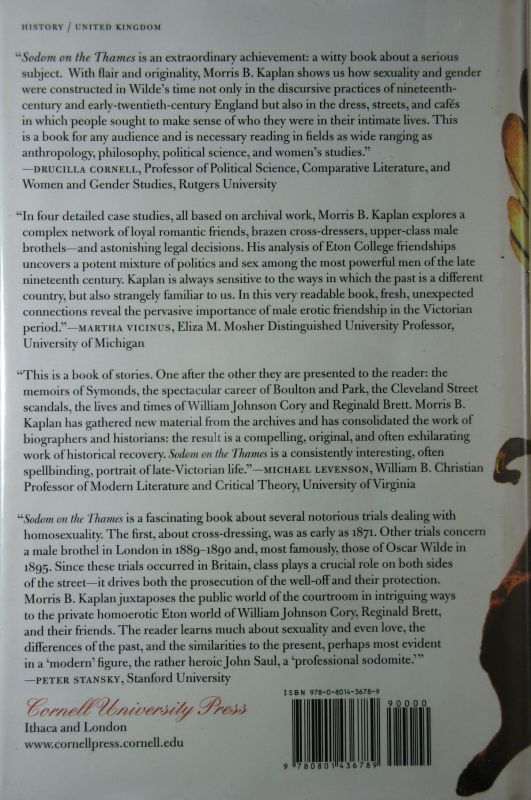
C O N T E N T S


